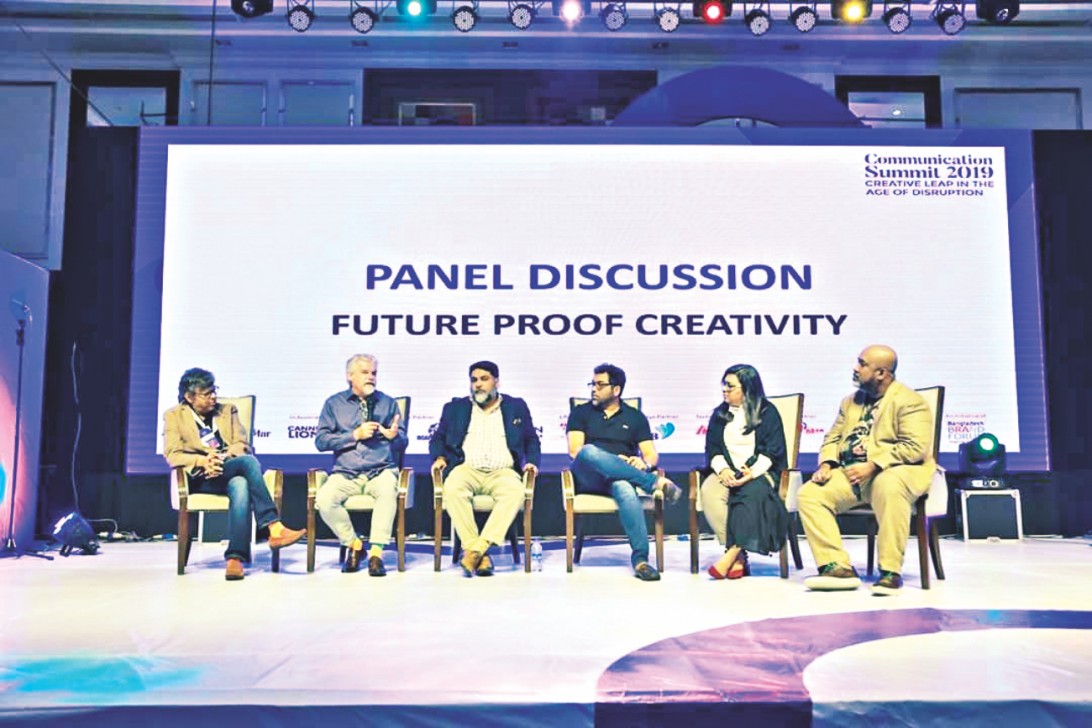Buoyant economy demands building brand image: experts

It is high time for Bangladeshi companies to build brand image as the economy is growing fast, advertising and marketing experts said yesterday.
“Bangladesh is not a tiny market anymore. So, it is highly required at this moment to build brand image globally,” Ashraf Bin Taj, president of the Marketing Society of Bangladesh, said at the opening ceremony of the Communication Summit at Le Méridien Dhaka.
Some 350 local and foreign advertising and marketing professionals took part in the ninth edition of the event.
The summit is a flagship initiative of Bangladesh Brand Forum (BBF)which brings together global and local experts, including creative professionals from diverse sectors to share knowledge.
Around 10,000 people are directly involved in the communication industry, which has been growing by 10 percent annually for the last few years, Taj said.
“The industry is progressing very rapidly in line with the growing economy,” he said, adding that it is time for Bangladesh to create brands as it will become a developed nation by 2041.
Three panel discussions were held in the daylong event where Tay Guan Hin, founder and chief creative officer of TGH Collective and Creative Change Catalyst of APAC Global Advisory, Surjo Dutt, national creative director of FCB ULKA, and David McCaughan, co-founder of Marketing Futures and storyteller at Bibliosexual, a consultancy firm, presented keynotes.
Syed Gousul Alam Shaon, managing partner and country head of Grey Advertising Bangladesh Ltd, moderated a discussion titled “Future Proof Creativity”.
Panelists at the discussions included Nazim Farhan Chowdhury, managing director of Adcomm Ltd; Iresh Zaker, managing director of Asiatic Experiential Marketing Ltd, and Kaniska Chakraborty, an Indian communication consultant.
People in the advertising agencies need to understand and embrace the term ‘actionability’, said Chakraborty.
“To ace in the creative field in these challenging times, you can’t simply rely on a vague understanding. Instead, you need to have a solid knowledge about the client’s product category, the consumers and even their employees.”
“Such solid understanding will shape our creative works in the days to come,” Chakraborty said.
Sharmin Rahman, head of retail and operations division at Grameenphone, shed light on the present condition of the Bangladesh’s advertising industry.
“We, in the advertising industry of Bangladesh, lack in three specific areas: attracting creative talent, nurturing them and retaining them. I think focusing on these issues will help shape the creative industry of tomorrow.”
“Advertising should not be limited to business graduates as a career option. Rather, we should try to make it much more lucrative, so that creative individuals from multiple disciplines flock to agencies, get trained and eventually perform with utmost passion,” she said.
Bangladesh has an exciting advertising industry and there is a lot of scope for creativity, said Shariful Islam, founder and managing director of BBF.
He said communication agencies now-a-days do not communicate directly with the consumers. Rather, they communicate with the clients.
There is an urgent need to reinvent the approach and orientation towards providing communication solutions, he said.
Since 2009, the Communication Summit has been playing a vital role in Bangladesh’s creative communication and advertising industry by bringing in local and global creative communication experts.
